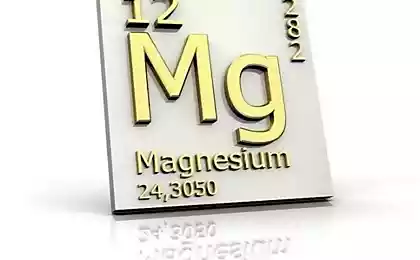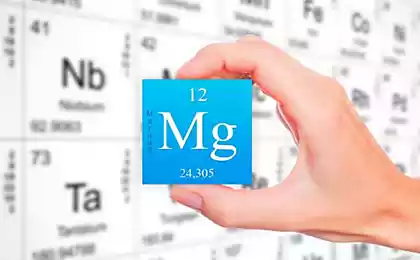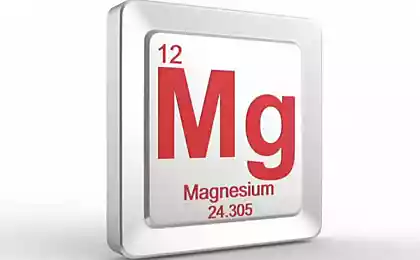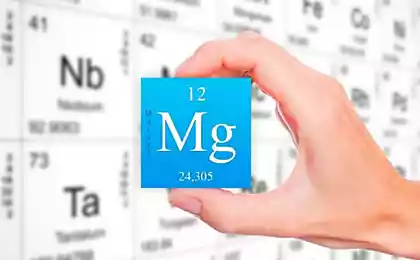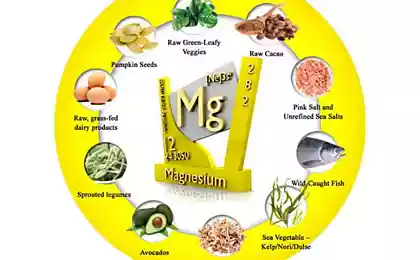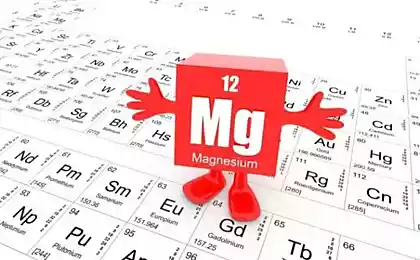492
5 major signs of lack of magnesium in the body

Lack of magnesium in the body can cause the development of type II diabetes, cardiovascular disease and other health problems, therefore important to be able to recognize the signs of magnesium deficiency.
Magnesium is a vital macromineral that is performing the body a huge amount of important functions. He is responsible for the regulation of enzymatic reactions (including those in which DNA is formed), the transfer of important ions across the cell membrane, assisting in the production of adenosine triphosphate, and more. Magnesium is essential to all important organs of human body for their proper functioning, and without it the human body gets out of control.
However, despite the biological importance of magnesium, the average person suffers from a serious lack of this mineral. According to the American chiropractic Association, approximately 68-80 percent of the American population suffers from magnesium deficiency — state, which in the absence of treatment can lead to development of serious diseases such as type II diabetes and cardiovascular disease. Therefore, the person important to be able to recognize warning signs, indicating a lack of magnesium.
Five of the following health problems is not the entire list of symptoms associated with magnesium insufficiency, but today these problems are the most common. If you are regularly faced with the described problems, consider taking magnesium supplements (and use a larger number of magnesium-rich foods, like nuts and leafy vegetables) and check if this helps to eliminate the aforementioned health problems.
Cramps and muscle twitchingis a Reason the magnesium contained in food supplements to improve sleep and is used to facilitate childbirth; magnesium is a mineral that allows the human muscle to relax. With a shortage of magnesium in humans, there are problems with the muscles, such as cramps, muscle twitching and facial tics. In the most extreme cases, twitching and cramps can lead to chronic insomnia.
Abnormal contraction of the heartLow levels of magnesium in the body adversely affects the heart muscles of a person. According to a study published in the German journal Wiener Medizinische Wochenschrift, the magnesium helps to provide a regular contraction of the muscles of the heart. When a person lacks magnesium, he begins to suffer from cardiac arrhythmia (irregular heartbeat) that increases the risk of heart attack and stroke.
Depression and bad moodMore than a century ago, doctors often prescribed a nutritional Supplement with magnesium patients suffering from depression. Today, the link between insufficient consumption of magnesium and bad mood almost forgotten, despite the fact that it is confirmed by many studies. For example, published in the journal Pharmacological Reports, in 2013 review article appears that supplementation with magnesium is effective in combating depression.
Ringing in the earsTinnitus is an unpleasant condition characterized by a constant ringing sensation or noise in the ears. Although the cause of tinnitus is sometimes infection, it can also be caused by unregulated production of glutamate, an important neurotransmitter, which helps to regulate magnesium. Therefore, the cause of tinnitus in healthy ear canals may be low levels of magnesium.
Kidney stonesSome believe that the reason for the formation of kidney stones is excess calcium. However, current studies continue to show that lack of magnesium plays the same, if not more important, role in the formation of kidney stones, and that supplementation with magnesium can help to cure this disease. For example, in a study published in the journal of Urology, there was a noticeable decrease in the frequency of calcium kidney stones in patients taking magnesium hydroxide. Thus, if you suffer from kidney stones, eating large quantities of magnesium can help you in the fight against this disease.published
Source: mixednews.ru/archives/74412

